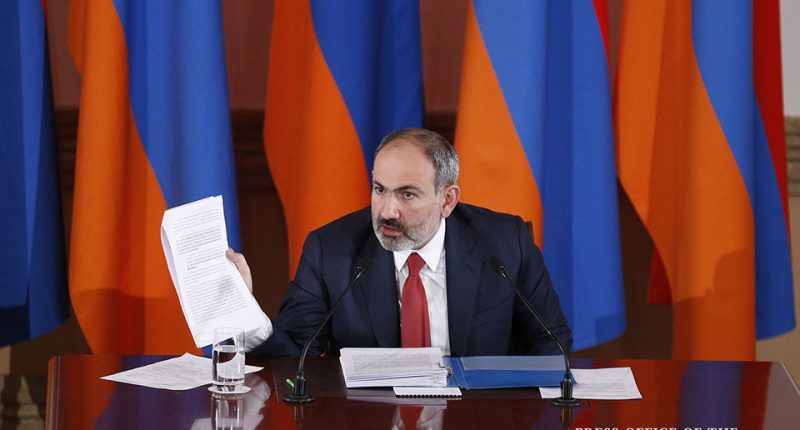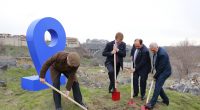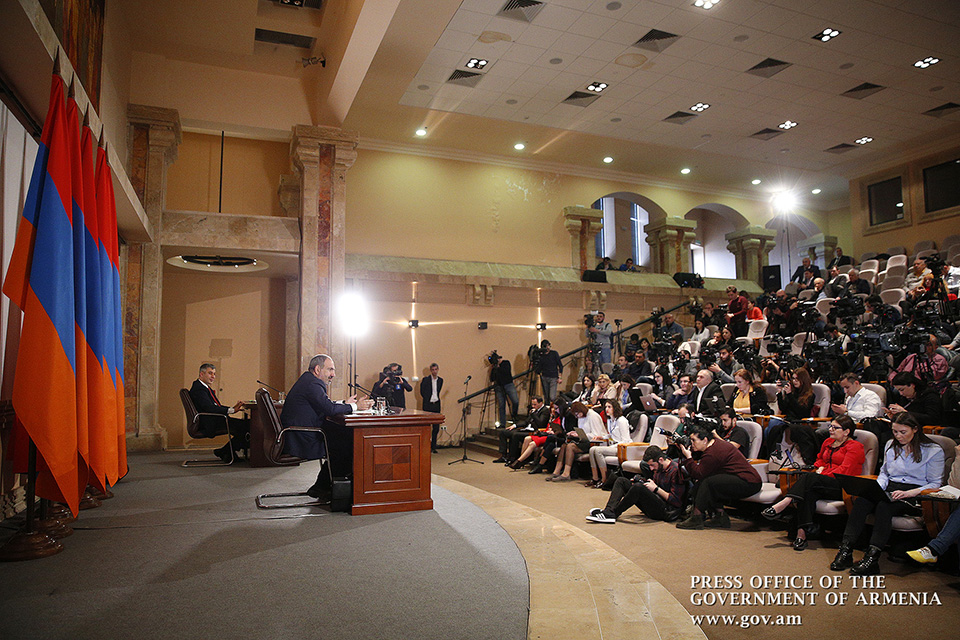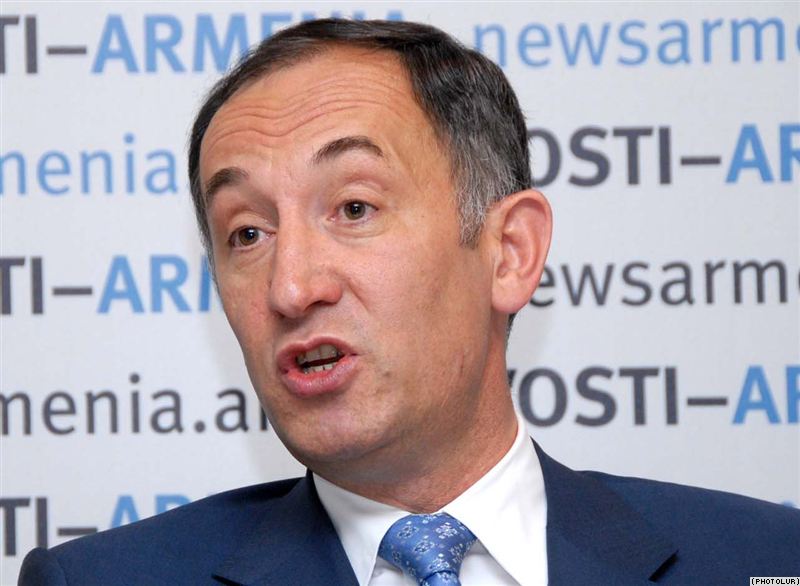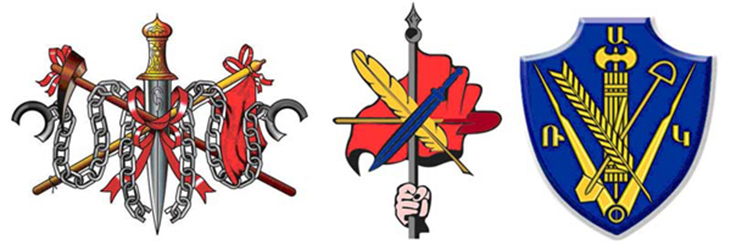YEREVAN (RFE/RL) — At a four and half hour press conference held in Yerevan, Prime Minister Nikol Pashinyan responded to a variety of questions from journalists covering Karabakh conflict, politics, corruption and economy.
Speaking about Karabakh conflict resolution, Pashinyan repeated what he already told senior Armenian and Karabakh security aides in Stepanakert a week ago that Nagorno-Karabakh’s becoming a full party to the peace talks “is not a whim or a precondition” on the part of Armenia, but a necessity for an effective settlement process.
Azerbaijan has opposed Nagorno-Karabakh’s participation in the talks as a separate party, insisting that the region is “occupied” by Armenia and negotiations should be held only directly with official Yerevan.
Last week, Azerbaijan’s President Ilham Aliyev rejected the latest Armenian proposal on the change in the format of the talks by way of involving Nagorno-Karabakh as a party to the process.
Pashinyan insisted that his statements on the need for Stepanakert’s engagement in the talks that he has repeatedly made since being first elected prime minister in May 2018 “are not a challenge, but an invitation to dialogue.” He further argued that he had already raised the issue during his informal meetings with Aliyev on the sidelines of different international events during the past months.
Ahead of his possible talks with the Azerbaijani president Pashinyan said: “We will continue discussions on this subject with our partners and will try to continue this discussion in the field of arguments, because negotiations are negotiations only when we listen to each other. At least Armenia has shown its ability to listen to its opponent, try to understand the other side, and we expect the same from them. Where our partners consider that our position can be viewed as excessively tough, we can soften this position, but we would expect the same from our partners, because otherwise no conversation will take place.”
The Armenian leader said that “we do not imagine a regime when one of the parties to the talks says that it refuses to have a dialogue.”
“It will not be a logical approach. Naturally, we will not refuse to have a dialogue and during this dialogue we will put on the table our arguments and will attentively listen to the counterarguments of our partners. I think that a constructive and effective solution or continuation should be within the framework of this logic,” Pashinyan said.
Asked whether a possible exchange of prisoners between Armenia and Azerbaijan could be discussed at his upcoming meeting with Aliyev, Pashinyan said: “The Armenian side is ready to exchange Azerbaijani citizens who strayed into Armenian territory with Armenians who strayed into Azerbaijani territory.”
The Armenian leader stressed, however, that such an exchange cannot concern Azerbaijanis who penetrated into Armenian or Karabakh territory and committed murders.
Addressing economic issues, Pashinyan stated that the Armenian government is currently discussing 802 investments projects worth a total of about $2.7 billion.
“Forty-two of these projects worth a total of $774 million are, in fact, already at different stages of implementation, others are at the stage of active discussions. This means that we have a certain increase in investment interest in the country,” Pashinyan said.
The head of the Armenian government also presented some other data testifying to some growing interest in unfolding economic activities in Armenia.
Thus, according to him, in February 2019 the volume of mortgage lending in Armenia grew by 100 percent, with the growth of mortgage lending within the framework of government programs making 145 percent as compared with the relevant data for last year’s February.
“In general, at present the volume of mortgage loans in the country has grown by 30 percent. According to experts, this is a huge increase. This means that in the near future we will have demand in the construction market, which in its turn will create new jobs not only in construction, but also on the building materials market, in the service sector and so on. This is a very important indicator, which in its turn will lead to the reduction of unemployment,” Pashinyan said.
The Armenian premier also spoke about expected financial assistance from the European Union concerning major infrastructure programs. He said that the EU is ready to provide funding, including in the form of grants, for some major projects, but expects Armenia to co-finance these projects. According to Pashinyan, this, in term, raises the issue of whether Armenia should raise the ceiling for its foreign debt level in order to borrow more for the co-financing of these projects.
“Now we should discuss whether we are ready to go this way, and in the next 20 days we are going to have a joint discussion with the Central Bank that will also involve representatives of the expert community in order to make a decision on this matter,” the Armenian premier said.

